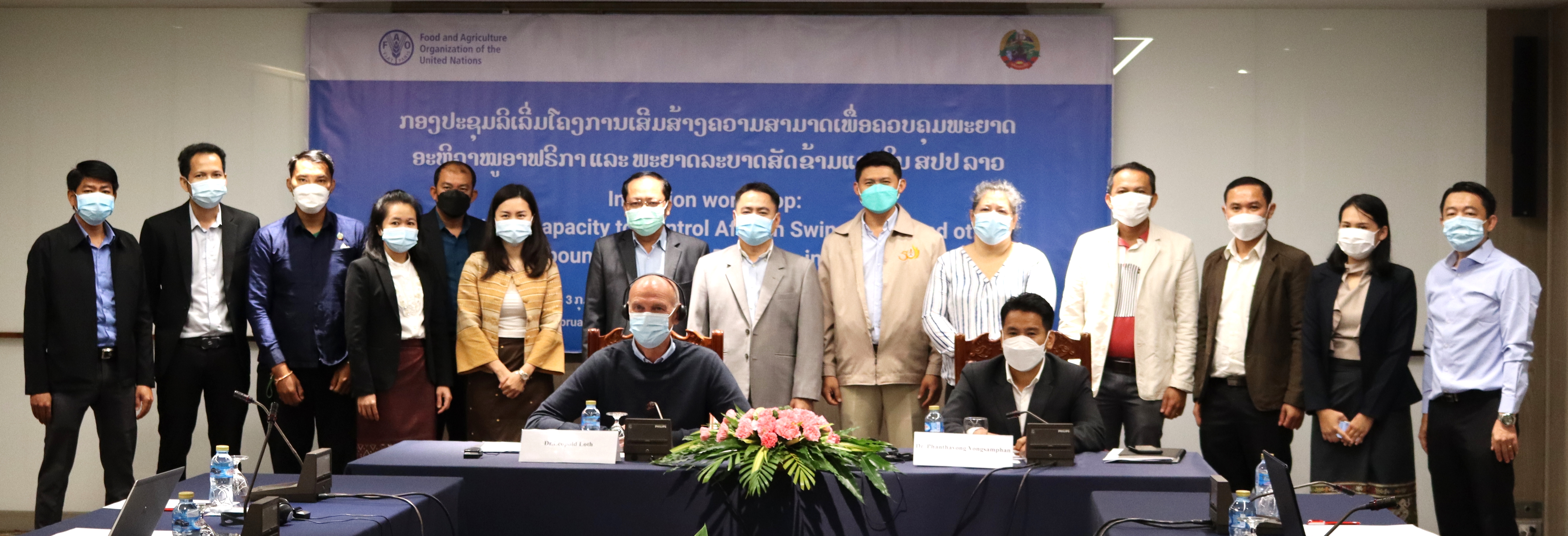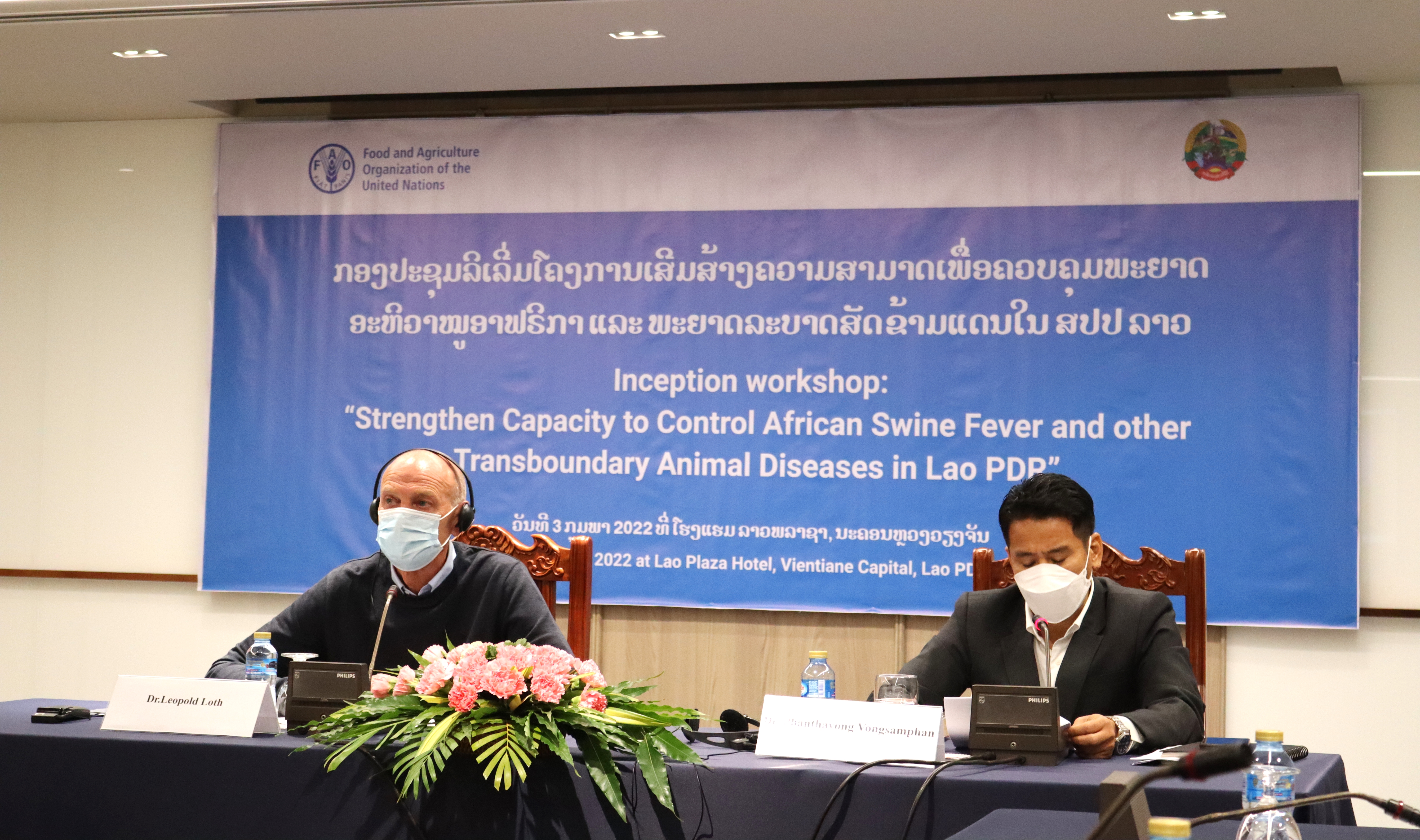Agriculture ministry beefs up vigilance against livestock diseases
The Ministry of Agriculture and Forestry will continue to work with the Food and Agriculture Organization of the United Nations (FAO) to strengthen the skills of agricultural experts on ways to combat African swine fever and emerging livestock diseases.
This was the message from the Deputy Director of the ministry’s Department of Livestock and Fisheries, Dr. Phanthavong Vongsamphanh, when he addressed a workshop to launch a new project titled Strengthen Capacity to Control African Swine Fever and other Transboundary Animal Diseases in Laos.
The aim of the project is to further mitigate the potential risk for the additional introduction and spread, as well as the impacts of African swine fever and other high-impact transboundary animal diseases. The project aims to develop and implement strategies and strengthen capacities to detect, control, and prevent African swine fever at the national, provincial, and district levels, and strengthen the national laboratory capacity to detect the disease.
The FAO is supporting the Lao government to strengthen capacity in the animal health sector to respond and control African swine fever in the pig population. FAO Representative to Laos, Mr. Nasar Hayat, expressed his concerns about African swine fever in the Lao pig population.
As there is no vaccination available against the disease and there is no cure once animals are infected, prevention through increased biosecurity measures is vital, he said. “Together, FAO and the Ministry of Agriculture and Forestry will ensure we further build skills on how to combat African swine fever and emerging livestock diseases,” he added.
FAO values the long-standing support from the Ministry of Agriculture, Food and Rural Affairs of the Republic of Korea in this important work, Mr. Hayat said. He also stressed the importance of the early detection of animal and human health threats, especially in the current Covid-19 pandemic environment.
African swine fever is a fatal hemorrhagic disease in domestic and wild pigs.
Since the first report of the disease in Asia in August 2018, a total of 16 countries in Asia and the Pacific have reported outbreaks.
These have occurred in China, Mongolia, Vietnam, Cambodia, Democratic People’s Republic of Korea, Laos, Myanmar, the Philippines, Republic of Korea, Timor-Leste, Indonesia, Papua New Guinea, India, Bhutan, Malaysia, and Thailand.
The disease is highly contagious and has caused millions of pigs to perish in the region. Consequently, farmers have occurred severe financial losses and hardship.
The shortage of pork in many countries has led to a dramatic increase in pork prices and dissatisfied consumers. Supply chains, including imports and exports, of live pigs and pork, have been disrupted, increasing the vulnerability of food supplies. When African swine fever was reported in neighboring countries and with the imminent threat of its arrival in Laos, FAO assisted the Department of Livestock and Fisheries to develop guidelines to respond to an outbreak.
The department first reported an outbreak of African swine fever in 2019 in all provinces, resulting in 20,000 pig deaths, while 6,000 pigs were culled in response to the outbreak.


